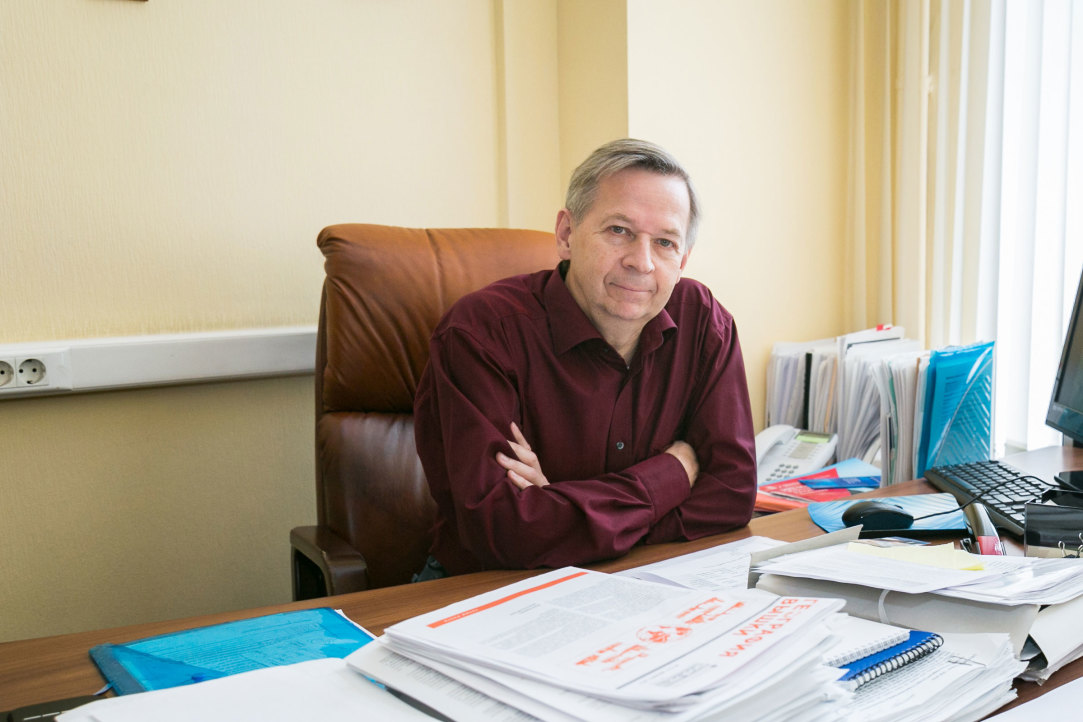Economic Growth: The Role of Human Capital
On November 10, Christopher Pissarides, Nobel Prize laureate in Economics and Professor at the London School of Economics, spoke at HSE ICEF. His lecture on human capital and its impact on economic growth commemorated the 20th anniversary of ICEF.

Visual Perception of Summary Statistics Not Following Mathematical Rules
Cognitive psychologists of the Higher School of Economics have experimentally demonstrated that people are capable of estimating the mean size of visible objects and their approximate number simultaneously, showing for the first time that these two cognitive processes are independent of each other and do not follow the rules of mathematical statistics. The results of this experiment, published in PLOS One, can inform new approaches to statistical data visualisation and statistical education.
Riccardo Cucciolla – Pursuing Postdoctoral Studies on the History of Soviet Uzbekistan
On November 1, Riccardo Cucciolla began a postdoctoral fellowship at the HSE International Centre for the History and Sociology of World War II and Its Consequences. During his year at HSE, he intends to pursue a research project that follows from his dissertation entitled ‘The Crisis of Soviet Power in Central Asia: The Uzbek Cotton Affair (1975–1991)’, which he wrote while completing a PhD in Political History at the IMT School for Advanced Studies Lucca in Lucca, Italy.
How HSE Popularizes Science
World Science Day for Peace and Development is celebrated on November 10. The day aims to promote research achievements and foster further research development. HSE puts great effort into popularizing research carried out at the university.

How Spatial Navigation Correlates with Language
Cognitive neuroscientists from the Higher School of Economics and Aarhus University experimentally demonstrate how spatial navigation impacts language comprehension. The results of the study have been published in NeuroImage.
HSE Basic Research Programme Publishes 1,000th Working Paper
The 1,000th working paper, which came out this November, discusses how innovative companies in the U.S. fund projects. Its authors are Anastasia Stepanova and Maria Kokoreva, research fellows at the HSE Corporate Finance Center, and Kirill Povkh, first-year Master’s student in the Corporate Finance programme.
HSE Begins Collaboration on Energy Systems with Jülich Research Centre
On November 7, HSE hosted a delegation from the Jülich Research Centre in Germany. Scholars from both countries came together to discuss joint research opportunities, including transformation of energy systems for sustainable development; future studies of energy technologies, including foresight studies; and methodological issues related to big data analysis and modelling.

What Mitigates the Consequences of Recession for Companies?
HSE experts demonstrated that companies with foreign participation have an easier time overcoming the consequences of economic recessions. The results of the study were presented in the paper ‘Lean against the wind: The moderation effect of foreign investments during the economic recession in Russia’ published by the Journal of Economics and Business.
Translation Studies Expert Speaks at School of Philology
On September 26 and 27, the HSE School of Philology hosted Professor Brian Baer of Kent University (Ohio, USA) for a lecture entitled ‘The Translator’s Biography in Soviet and Post-Soviet Russia: Art, Politics, Identity’, followed by a workshop on ‘Teaching Translation Studies’. Following his lecture and workshop, Professor Baer spoke with the HSE News Service about his career as a translator, the role of the translator in society and his recommendations for international readers looking for exposure to Russian literature.

'HSE Was Able to Become a Success in a Short Period of Time'
Oleg Ananyin, Tenured Professor, Professor in the Department of Theoretical Economics (Faculty of Economic Sciences), Academic Supervisor of the ‘Politics. Economics. Philosophy’ master’s programme, Chairman of the Education and Teaching Methods Council, Member of the HSE Academic Council, spoke on his academic interests, as well as shared his thoughts on the development of HSE and Russian economic community.


Application deadline: June 23, 2025